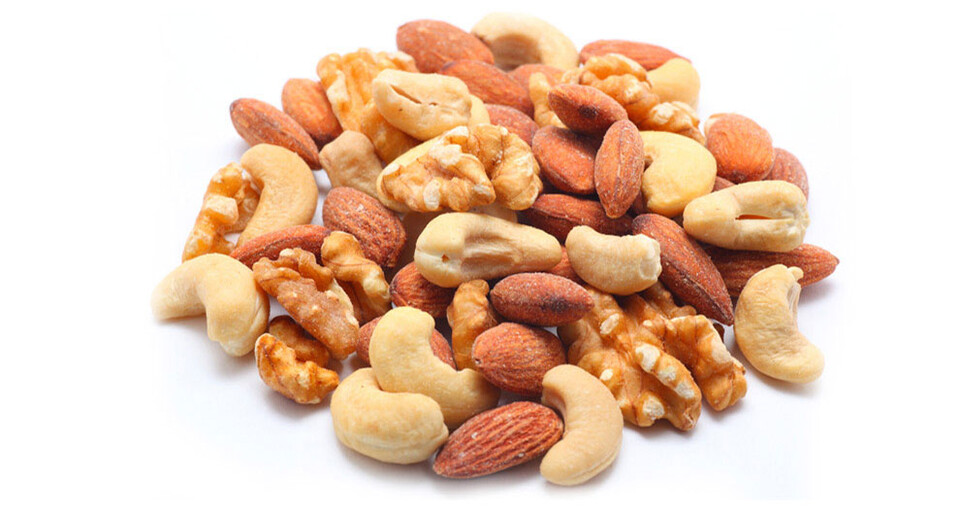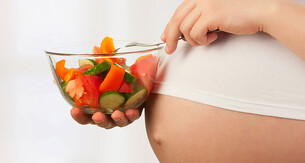Vitamin E belongs to the group of fat-soluble vitamins, which means that it is processed by the body only in combination with fat. Above all, vitamin E is good for skin, hair and the mucous membranes. But it is also involved in building the muscles, the connective tissue and the blood vessels. The body requires vitamin E to develop an intact immune system. Vitamin E protects cell walls against aggressive oxygen compounds by catching and neutralising so-called free radicals.
Vitamin E protects the cells
Why is vitamin E so important?

How much Vitamin E do pregnant women need?
The recommended dietary allowance (RDA) for vitamin E during pregnancy is 15 milligrams (mg) per day for adult women, according to the Dietary Reference Intakes (DRIs) established by the Institute of Medicine (now the National Academy of Medicine) in the United States.
Taking Vitamin E before pregnancy
Taking Vitamin E before pregnancy is beneficial for women who are planning to conceive. There isn’t a specific dosage needed, however vitamin E is essential for overall reproductive health and potentially support a healthy pregnancy. Vitamin E has antioxidant properties which neutralized harmful free radicals in the body. It is also a powerful ingredient in regulating hormonal balance, especially for menstrual cycle regulation and ovulation. Apart from that, vitamin E contributes a huge part in uterine and sperm health.
How do you know if you have a Vitamin E deficiency?
1. Vision problems: Deficiency may lead to vision problems such as retinal damage
2. Balancing issue: Nerve damage from vitamin E deficiency may lead to balancing and coordination issue, causing difficulty to walk and stabilize
3. Muscle weakness: Decreased muscle coordination and lack physical strength
4. Weak immune function: Deficiency may impair immune function, making individuals more prone to infections and illnesses
5. Skin problems: Skin issues such as dryness and itchiness may occur
It’s crucial to know that these symptoms may also be caused by other medical conditions. Hence, it is important to seek for professional’s consultation for proper diagnosis and treatment.
Best food sources for Vitamin E
1. Vegetable oils: Sunflower oil, olive oil, wheat germ oil and safflower oil which are rich sources of vitamin E
2. Nuts and seeds: Almonds, sunflower seeds, hazelnuts and pine nuts
3. Green vegetables: Spinach and kale
4. Whole grains: Brown rice, oats, and quinoa
5. Fruits: Kiwi, mango and papaya
6. Nut butter: Peanut butter and almond butter
Are Vitamin E supplements necessary?
In general, for most healthy individuals who consume a balanced diet may get supple amount of vitamin E. However, if there are certain cases where vitamin E is insufficient due to certain factors like specific medical conditions or malabsorption disorder.
Frequently asked questions on Vitamin E in pregnancy
Should pregnant women take Vitamin E supplements?
In general, for most healthy individuals who consume a balanced diet may get sufficient amount of vitamin E. However, if there are certain cases where vitamin E is insufficient due to certain factors like specific medical conditions or malabsorption disorder.
Does Vitamin E increase the chances of conception?
Vitamin E may indirectly support conception by contributing to overall reproductive health. There are some ways such as hormonal balancing from consumption as well as antioxidant in vitamin E that helps neutralize harmful free radicals in the body.
How much Vitamin E is recommended in pregnancy?
The recommended dietary allowance (RDA) for vitamin E during pregnancy is 15 milligrams (mg) per day for adult women, according to the Dietary Reference Intakes (DRIs) established by the Institute of Medicine (now the National Academy of Medicine) in the United States.
Is Vitamin E face cream safe during pregnancy?
Vitamin E is generally considered safe for most women even during pregnancy. However, it is important to take note of the ingredients to consider any specific sensitivities and concerns. Some creams may contain fragrances and essential oils that could potentially trigger allergic reaction. Hence, it is also important to consult with a healthcare professional should there by any concerns about using specific skincare products during pregnancy.




